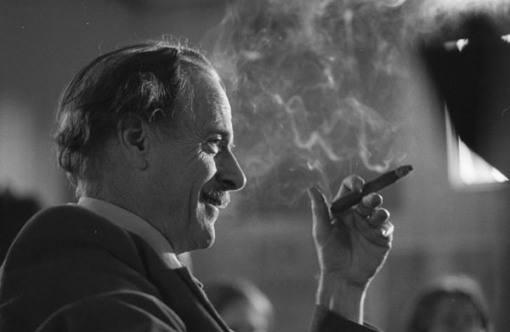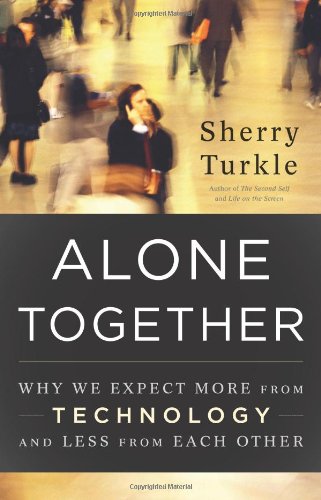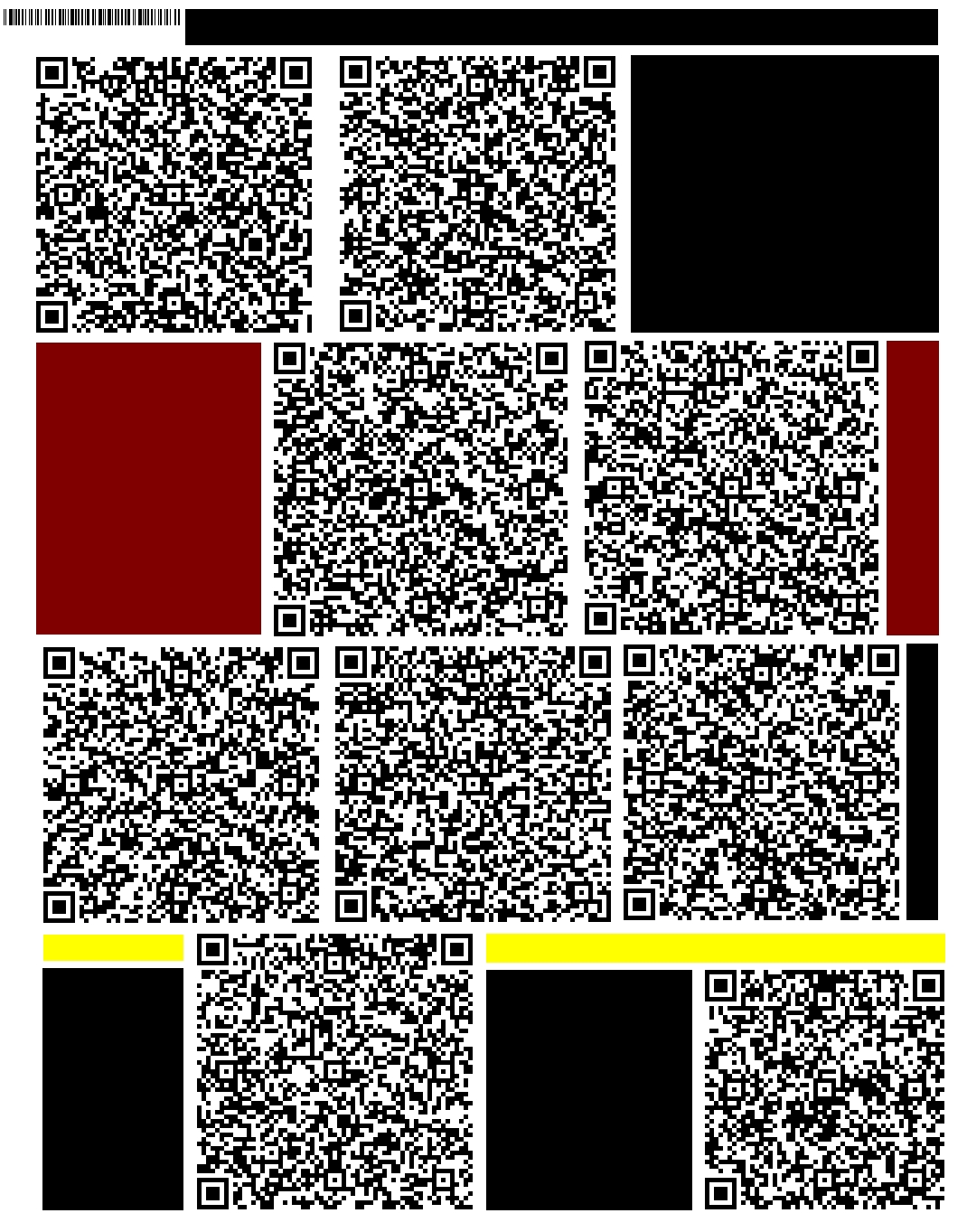Three writers who focus on the use and rhetoric of media, rather than on their inherent characteristics or their ethical valences, come together here. Wendy H. K. Chun demands that our attention to the social contexts of emergent technologies center on the political matters of force and sovereignty. Lisa Nakamura draws our attention to myriad, and structural, irruptions of old inequalities as manifested in ostensibly transcendent new media. And Lisa Gitelman pointedly reminds us, through a meticulous and engaging historiography, that what we call ‘new’ in media has older histories than we often care to admit, that all media were new once, and that any divergent practice or technology enters a complex set of other, perhaps related, media, in which nothing can be outgrown, only deprecated. Together, these thinkers provide good scholarship on which further research can be modelled, and provocative questions that demand further thought.
Continue reading
Category Archives: academic


Internet – Lit Reviews – McLuhan, Manovitch
Whether one accepts straightforwardly deterministic speculation or not, whether one prefers to think the mind and the collective mind as functions of or factors in computing, we are bound by mediating forces. As the paragons of privileged speculation, Marshall McLuhan and Lev Manovich stand unchallenged as the sources for media and software theory in the United States. Their conceptual frameworks are most contentious when held against certain French thinkers’. McLuhan’s insight that all media contain as a message a prior medium finds a counterpoint in Regis deBray’s analysis of media as overlapping paradigms, rather than linear progressions. Manovich’s later contributions to software theory as a field in its own right takes as a direct target the archaeology of media as expounded by Michel Foucault, whose concentration on print and writing as valid archival data severely limits his historiographic impulses. But taking these two Anglo writers’ work on their own, we can unpack just where they stand, as well as their utility and inspiration for contemporary thought. Continue reading
The Plan

Internet – Lit Review – Turkle
Turkle, Sherry. Alone Together. New York: Basic, 2011
It would be foolish to refute the core premise of Sherry Turkle’s third installment in her series on computers and people: technology – specifically, robots and computers – have taken on agency in their relationships to humans. Her anecdotal approach threads a compelling argument through selections from her psychoanalytic research that includes over 450 subjects, of all ages. In Turkle’s estimation, computers have become what occupies us, keeping us always tethered and networked, rather than remaining our occupational instruments. Likewise, her staunch humanism views the advent of robotics that go beyond artificial intelligence by performing social functions like caring and emotion as a pivotal “robotic moment” for our lives, and for our concepts of life as such. The stakes of being-human, on her account, are changing, and not necessarily for the better. Continue reading

Internet – Lit Reviews – Kittler, Lanier, Jenkins
Internet – Synthesis – Methods and Approaches
While composing the preliminary reviews of literature that surround this post (it being posted retrospectively – something pops up here about the instability of blog-time, no doubt) certain tendencies and distinctions among the many approaches to internet studies have cemented. As the time comes to distinguish my own approach and its component pieces from the existing ones, both those which contribute to it and those from which it makes more sense to distance ourselves, a synthesis of those reviews comes into form. Tracing those groups in the literature that hang together, marking the details and purposes and focus of the ongoing project, and then arguing for the validity of a fresh approach and method, this post will form a temporary holding point en route to the field statement’s proposal and procedure. But we begin just by restating the themes of the semester so far.
Continue reading
Internet – Bibliography
Internet Studies – Bibliography

Foucault – History of Madness / Madness and Civilization
A landmark topical study from Foucault’s early career, History of Madness took nearly forty years before arriving in the U.S. in a full translation. Jean Khalfa’s magnificent treatment of the sprawling text delivers Anglophone readers more than just extra pages. The differences between Madness and Civilization (based on the 1964 adaptation) and History of Madness (based on the original 1961 version) extend to conceptual nuances as well. In particular, the abridgment of the critique of psychiatry, in Madness and Civilization, flirts with a characterization of madness as repressed genius. But the more detailed argumentation in History of Madness, especially its focus on the institutional disciplines surrounding reason, emphasizes a conscientiously empirical archaeology of reason instead. Still, a central lament, for the loss of unreason after the 18th century, remains in force across both texts. Continue reading

Internet – on Labor
At a relaxed dinner with a good friend recently, we discussed the difficulty of finding a job in Detroit over the last few years. We spoke about the population’s available, marketable skills, and compared the price of land/rent to the type of organizations with the capital to buy it up. Then, we touched on a curious potential outcome of the current grim circumstances. In ten or fifteen years, we posited, when the city has grown again and its workforce is active again, a primary economic driver could well be the Silicone titans. This unusual placement of internet-driven internet drivers would seem out of place in the Motor City, except for a few key factors. First, technology industries require massive investments of capital for infrastructure and of labor for support in addition to the engineers and designers who are their most visible participants. Second, the data in the United States flows through Detroit, necessitating more of those support staff as that stream grows. And finally, the low cost of land and utilities, and the propensity of large IT firms to model their operations on 19th and 20th century factories, means that the companies have incentive to move to such an area already. Some small moves in this direction could trigger large changes to the economic situation there. Continue reading

Foucault – Archeology of Knowledge
Foucault’s methodological treatise, a decade in the writing, dismantles and reassembles historiography and epistemology. Rather than treat its object — discourse — as evidence of contiguous historical phenomena, Archaeology of Knowledge (AK) situates discourse as the rules that govern our organization and understanding of historical (as well as political, social, and other sets of) knowledge. At the same time, it describes discourse as a practice that encompasses the very making of those rules. True, then, that this abbreviated forum, as always, would fall short of adequate recapitulation of the book’s themes, let alone to float critique. But we can try:
The frontiers of a book are never clear-cut: beyond the title, the first lines, and the last full stop, beyond its internal configuration and its autonomous form, it is caught up in a system of references to other books, other texts, other sentences: it is a node within a network. Continue reading